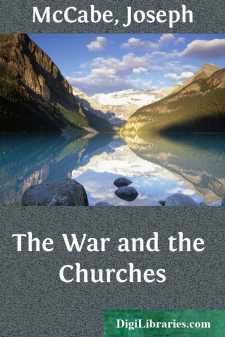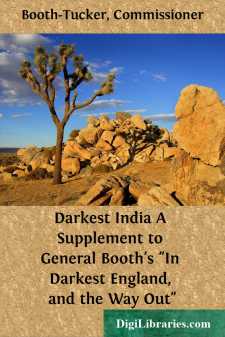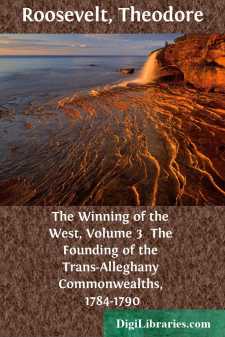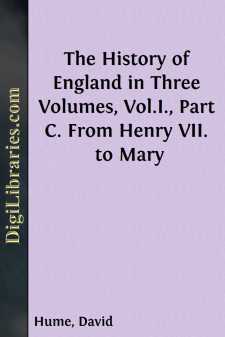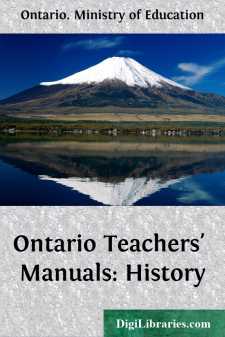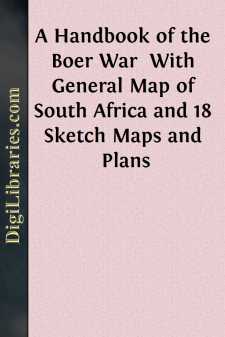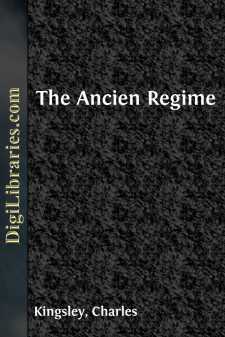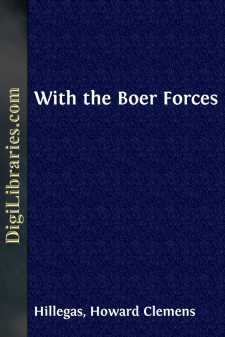History
- Africa 30
- Americas (North Central South West Indies) 50
- Ancient 68
- Asia 58
- Australia & New Zealand 8
- Canada 41
- Caribbean & West Indies 1
- Civilization 20
- Eastern Europe 12
- Europe 310
- Expeditions & Discoveries 60
- General 77
- Historical Geography 1
- Jewish 9
- Latin America 3
- Medieval 8
- Middle East 13
- Military 248
- Revolutionary 8
- Study & Teaching 5
- United States 353
- Western Europe 56
- World 13
History Books
Sort by:
by:
Joseph McCabe
CHAPTER I THE RESPONSIBILITY OF THE CHURCHES The first question which the unprejudiced inquirer will seek to answer is: How far were the Churches able to prevent, yet remiss in using their influence to prevent, the present war? There is, unhappily, in these matters no such thing as an entirely unprejudiced inquirer. Our preconceived ideas act like magnets on the material of evidence which is submitted...
more...
CHAPTER I. WHY "DARKEST INDIA?" It is unnecessary for me to recapitulate the parallel drawn by General Booth between the sombre, impenetrable and never-ending forest, discovered by Stanley in the heart of Africa, and the more fearfully tangled mass of human corruption to be found in England. Neither the existence, nor the extent, of the latter have been called in question, and in reckoning the...
more...
by:
Emma Helen Blair
News from the Province of Filipinas, This Year, 1621 By letters which we have received from Japon this January, 1621, we heard how bitterly the persecution of God’s religion is carried on in Boxu, the country of Masamune,who has been accustomed to send embassies to Spain in past years. The spread of the holy gospel and uninterrupted preaching went on until the return of the ambassador. Hitherto...
more...
CHAPTER I. THE INRUSH OF SETTLERS, 1784-1787. At the beginning of 1784 peace was a definite fact, and the United States had become one among the nations of the earth; a nation young and lusty in her youth, but as yet loosely knit, and formidable in promise rather than in actual capacity for performance. The Western Frontier. On the western frontier lay vast and fertile vacant spaces; for the Americans...
more...
by:
David Hume
Henry was not ignorant of these intentions of his enemies, and he prepared himself for defence. He ordered troops to be levied in different parts of the kingdom, and put them under the command of the duke of Bedford and earl of Oxford. He confined the marquis of Dorset, who, he suspected, would resent the injuries suffered by his mother, the queen dowager; and, to gratify the people by an appearance of...
more...
CHAPTER I AIMS History may be made, in several ways, an important factor in forming intelligent, patriotic citizens: (a) It must be remembered that society, with all its institutions, is a growth, not a sudden creation. It follows that, if we wish to understand the present and to use that knowledge as a guide to future action, we must know the story of how our present institutions and conditions have...
more...
by:
Unknown
I. THE ROUNDHEADS OF SOUTH AFRICA History often reproduces without reference to nationality some particular human type or class which becomes active and predominant for a time, and fades away when its task is finished. It is, however, not utterly lost, for the germ of it lies dormant yet ready to re-appear when the exigencies of the moment recall it. The reserve forces of human nature are inexhaustible...
more...
by:
Charles Kingsley
PREFACE The rules of the Royal Institution forbid (and wisely) religious or political controversy. It was therefore impossible for me in these Lectures, to say much which had to be said, in drawing a just and complete picture of the Ancien Régime in France. The passages inserted between brackets, which bear on religious matters, were accordingly not spoken at the Royal Institution. But more. It...
more...
Andrew Johnson Andrew Johnson was born in Raleigh, N.C., December 29, 1808. His parents were very poor. When he was 4 years old his father died of injuries received in rescuing a person from drowning. At the age of 10 years Andrew was apprenticed to a tailor. His early education was almost entirely neglected, and, notwithstanding his natural craving to learn, he never spent a day in school. Was taught...
more...
CHAPTER I Immediately after war was declared between Great Britain and the Boers of the Transvaal and the Orange Free State, the two South African republics became ostracised, in a great measure, from the rest of the civilised world. The cables and the great ocean steamship lines, which connected South Africa with Europe and America, were owned by British companies, and naturally they were employed by...
more...


